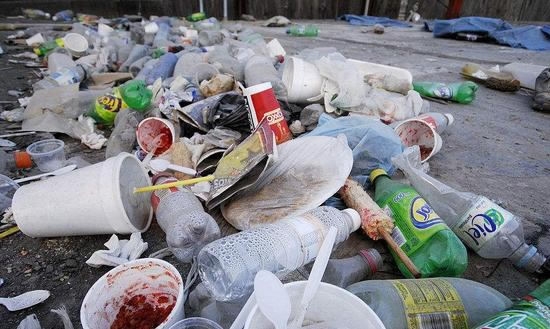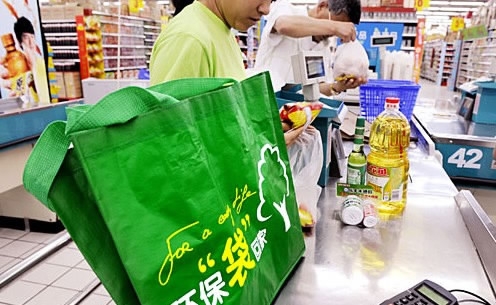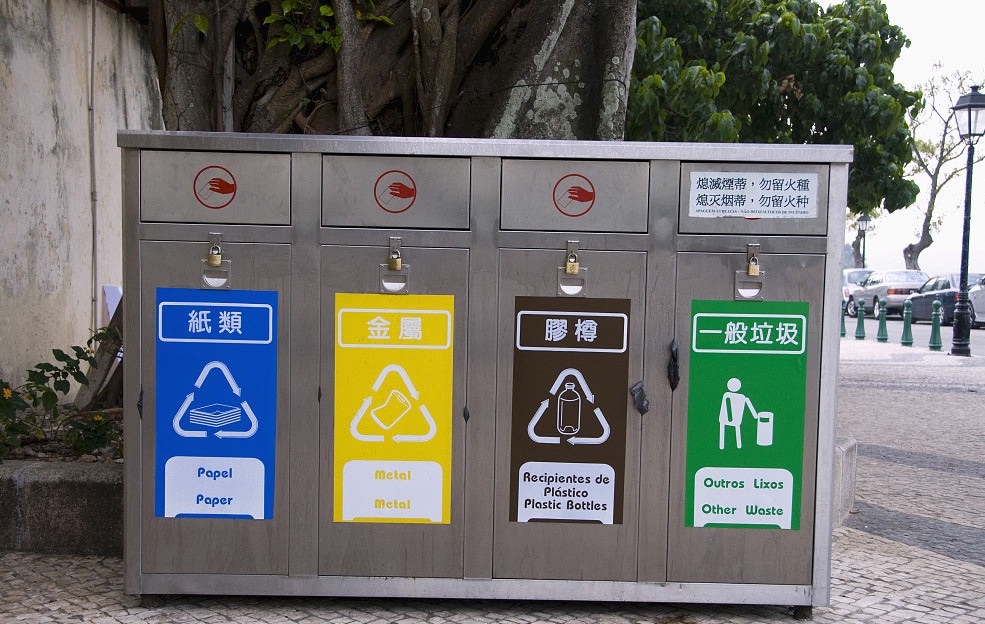
Business
11:15, 12-Jan-2018
New headaches from new shopping habits, plastics ban 10 years on
CGTN's Li Ying

Ten years since China placed a ban on free plastic bags, the knock-on effect has been evident, with supermarkets and shopping malls reporting huge reductions.
Unfortunately, although demand for plastic bags in brick and mortar retail has been on the decline, online food delivery and e-commerce is on the rise. This has exacerbated the use of plastic packaging, from bubble wrap to tape and thick, single-use plastic food containers.

VCG Photo.
VCG Photo.
Following recent public skepticism over the plastics ban, China's top economic planner, the NDRC, recently opened up a section on its website to solicit opinions and suggestions from the public on how to better curb disposable plastic packaging.
The number of people ordering food over the Internet in China will soon hit 300 million, up 20 percent from a year ago while nearly 15 billion plastic bags last year were used to deliver goods ordered online.
Businesses are looking for a greener work-around to the problem.

VCG Photo.
VCG Photo.
In a Subway restaurant in Beijing, waitress Duan Ying said that their stores use environmentally-friendly plastic bags and they advise their customers to use reusable shopping bags instead, such as like cotton or canvas totes.
Meanwhile, the public has maintained an overall positive attitude towards the environmental protection and expects the relevant solutions coming soon.

VCG Photo.
VCG Photo.
One Beijing resident said that the government should vigorously promote environmental protection and the production of degradable plastics. Residents should sort their garbage and recycle items and opt for paper or canvas bags whenever possible.
Another resident says that the ban on plastic bags is no longer very effective and that it is time the government reviews standing rules and regulations and further perfect the existing policies.

SITEMAP
Copyright © 2018 CGTN. Beijing ICP prepared NO.16065310-3
Copyright © 2018 CGTN. Beijing ICP prepared NO.16065310-3